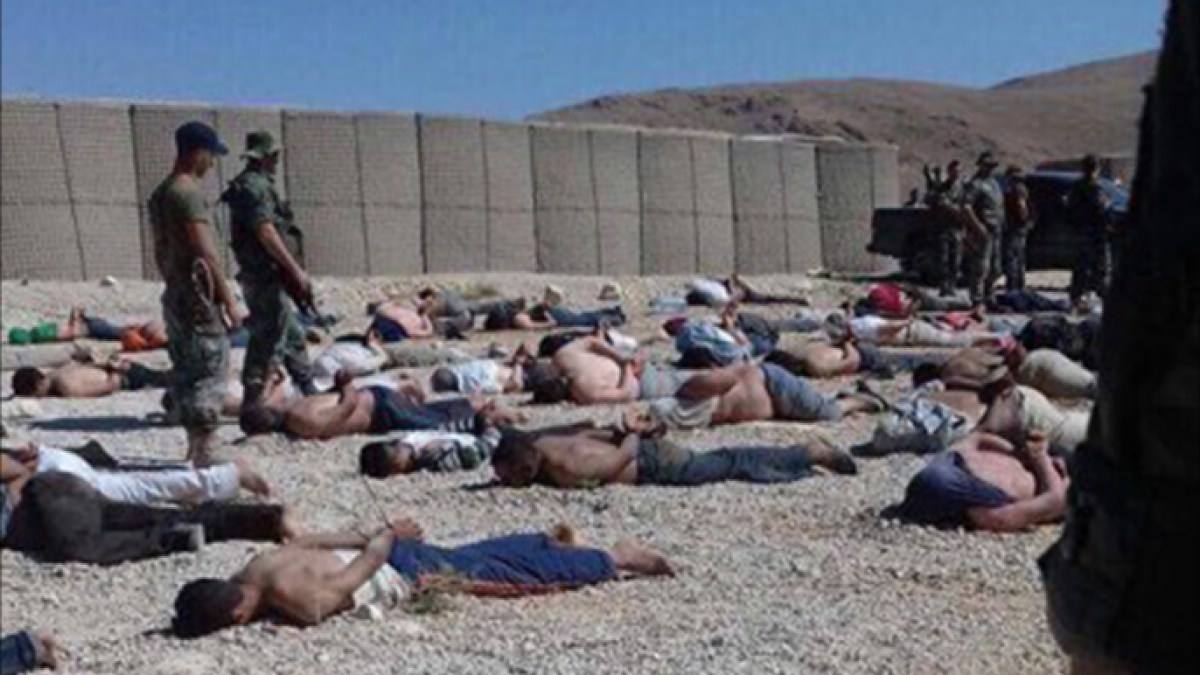
Detained Syrians held in harsh conditions in Lebanon are demanding their release, asserting that the fall of the Bashar Assad dictatorship invalidates the terrorism-related charges against them, which were originally made due to their support for the opposition or affiliation with the rebel Free Syrian Army. Since the revolution began in 2011, hundreds of Syrian refugees have been detained in Lebanon, sometimes in relation to their supposed membership in armed groups, but often arbitrarily.
Syrian inmates at Roumieh prison, east of Beirut, managed to get a message out to the new transitional government in Damascus earlier this year, appealing for intervention on their behalf. Interim President Ahmad al-Sharaa raised the issue of “prisoners of conscience” in Lebanon during negotiations with then Lebanese Prime Minister Najib Mikati in February. But there has been no action since then—despite the fact that over 100 prisoners went on hunger strike to press the issue.
The Syrian Network for Human Rights issued a statement on the situation Feb. 18, declaring: “Syrian detainees, particularly in Roumieh Prison, are enduring inhumane detention conditions, including severe overcrowding, a lack of medical and food supplies, and the spread of infectious diseases, in addition to being denied contact with their families. Many have been subjected to unfair trials before Lebanese military courts or military investigative judges, based on confessions extracted through torture and threats. These coerced confessions led to them being charged with terrorism, resulting in severe prison sentences or indefinite pretrial detention.” (Daraj)
Nearly 80% of Lebanon’s prison population is in pretrial detention, according to the Ministry of Interior. Roumieh prison, Lebanon’s largest, was built to hold 1,200 prisoners, but currently holds over 4,000, according to the head of the Beirut Bar Association. Prisons an detention centers across Lebanon have a total official capacity of 4,760, but currently hold some 8,500 people, only 1,094 of whom have been sentenced. (HRW)
Conditions in these facilities have worsened in recent years. Deaths in Lebanon’s prisons nearly doubled in 2022 compared to 2018, the year before the ongoing acute economic crisis began, Amnesty International noted in 2023. The figure jumped from 18 in 2018 and 34 in 2022. (AI) Riots erupted in Lebanon’s prisons, including Roumieh, in March 2020 over insufficient measures to contain a COVID outbreak in the facilities. (MEM)
Amnesty International’s March 2021 report, “‘I Wish I Would Die’: Syrian Refugees Arbitrarily Held on Terrorism Charges and Tortured in Lebanon,” documented abuses committed primarily by Lebanese Military Intelligence against 26 detainees, including beatings with metal rods, electrical cables, and plastic pipes. Detainees and survivors interviewed by Amnesty also described being suspended upside down. (AI)
Video footage recently released on social media by Syrian inmates from within Roumieh prison indicate that such abuses continue. The inmates point to the influence over the Lebanese government by Hezbollah, ally of the ousted Assad regime, as resposible for their being targeted. Political prisoners within Syria were all freed after the fall of the regime in December.
Up to 125 prisoners participated in the hunger strike, which began just before the start of Ramadan in mid-February. It was suspended after 17 days following a visit to Roumieh by a Syrian embassy official, who told them that embassy staff were working for the prisoners’ release and return to Syria.
Before the fall of the Assad regime, the UN Refugee Agency counted 1.5 million Syrian refugees in Lebanon.
Photo via Facebook




